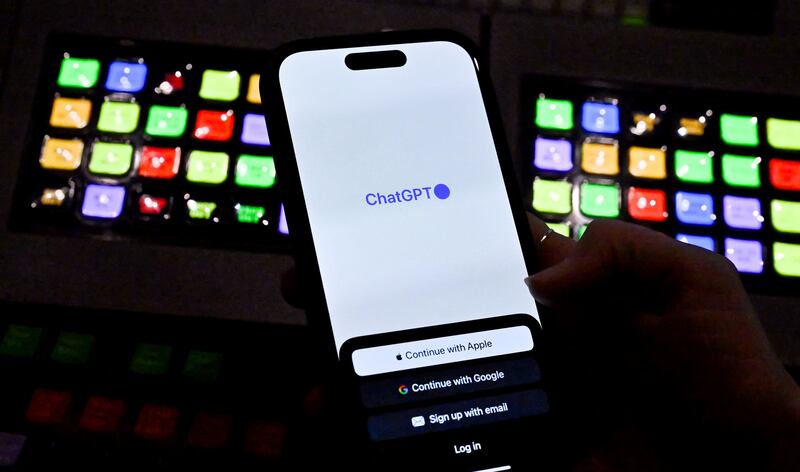The new age of artificial intelligence is here, with leaders from across the state coming together to discuss how Utah plans to lead in AI innovation while also ensuring the technology is regulated through responsible policy.
The goal is to make sure AI benefits lives instead of disrupting them.
From smart speakers in your home to the chatbots answering your questions, technology has always been ahead of legislation, as state and federal governments struggle to pass laws regulating social media.
But Utah is taking a different approach through a collaboration between academia, industry and government to ensure AI is both transformative and trustworthy, leaders emphasized during an event on Friday — the Responsible AI Community Consortium at the University of Utah.
In 2023, the University of Utah announced a $100 million investment in the Responsible AI Initiative. Led by the University of Utah’s first chief AI officer, Manish Parashar, the initiative aims to attract top researchers and experts to the state, expand the state’s cyberinfrastructure where developers can safely test new AI models, and foster the partnership between government, industry and academia to use AI to help with real problems Utah residents face, such as improving air quality.
“We want to make sure that our technology is safe, that it’s productive, that it’s helpful for people and not exploitative and not exposing our kids to harm,” said Margaret Busse, executive director at the Utah Department of Commerce. Busse has played a critical role in holding social media platforms responsible for their harm to minors.
“We want our industry to be value-based and be accountable. We want to innovate, and we want to be connected. We want our government to be setting the example. We want to be trustworthy, and we want to be competent,” Busse said
As a central figure in policy, Busse helped build the framework around the Utah AI bill that was passed in 2024. The bill, the first of its kind in the nation, introduced business accountability for AI-driven misconduct. It also requires regulated occupations, such as health care professionals, to disclose if they are using generative AI, and it creates the Office of Artificial Intelligence Policy and the Artificial Intelligence Learning Laboratory Program.
Busse added, “What we’re working on right now, and should expect to see bills in the next legislative session starting in January, are around companion AI and deepfakes. And then we’ve got some possible future learning agendas looking at health care and AI, consumer data privacy, and education and AI.”
Companion AI is designed to replicate humanlike relationships and provide emotional support and friendship. Deepfakes can take an existing image or video and replace it with someone else. One example of this can be seen on TikTok, where a user can impersonate Tom Cruise, for example, in dozens of videos.
Busse took a deep dive into how officials are planning on implementing changes using AI in education through help with curriculum development, internships and the creation of an AI-savvy workforce through a partnership with NVIDIA. The initiative aims to equip schools with the resources to train students about generative AI so they are equipped with the skills needed in future jobs.
“We want to create a society that is tolerant of each other, that is interested in ideas from each other, and is kind, frankly,” Busse said.
“We know some of our technological tools that have been powered by certain technologies have only intensified polarization. Once again, we can decide how we’re going to build those tools — they don’t have to be that way. We can choose different business models. This is a moment in time, Utah can really shine.”

